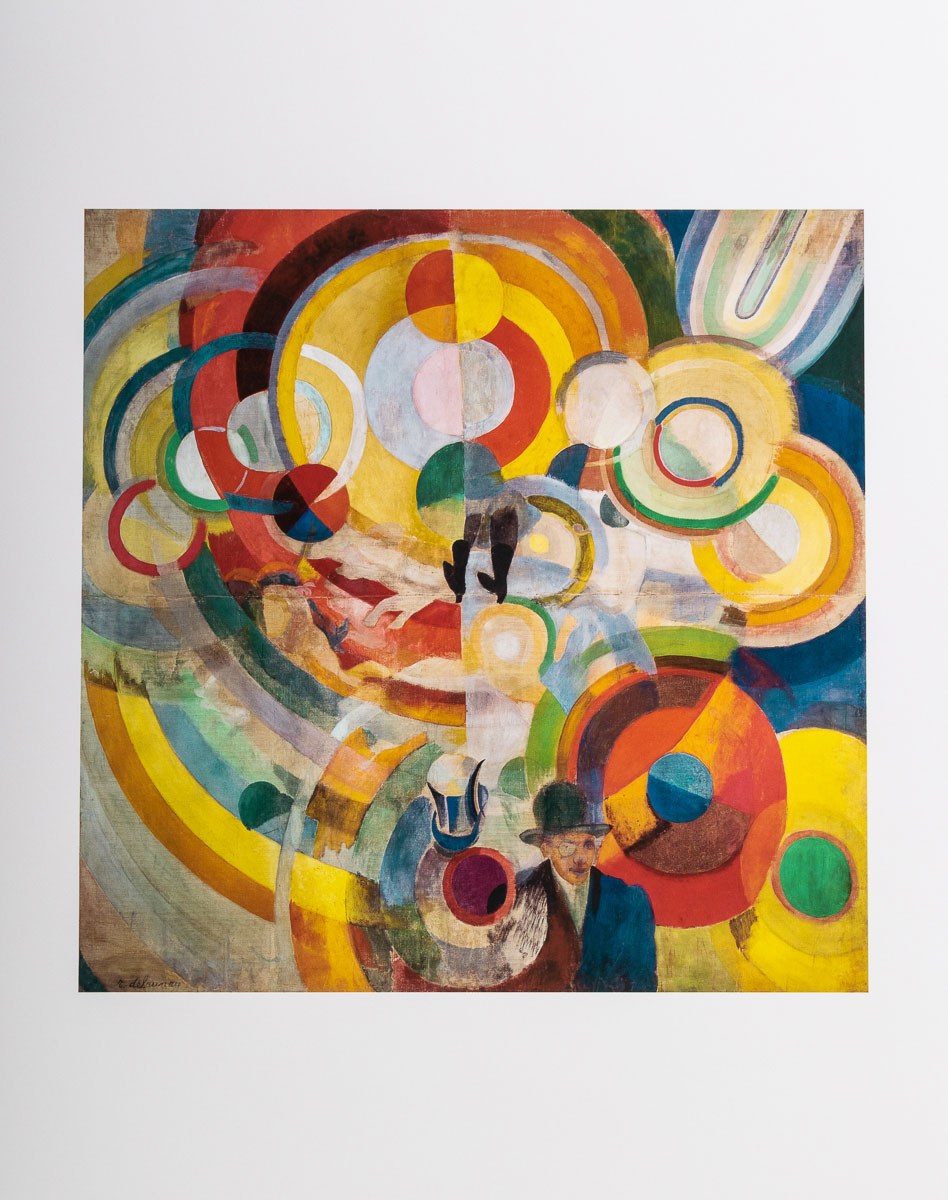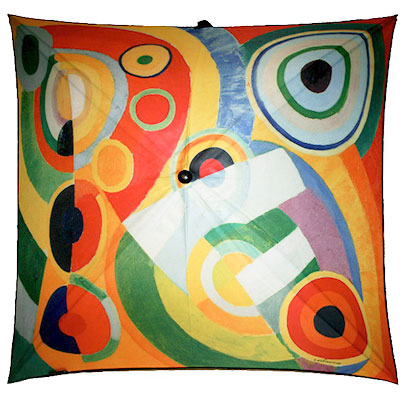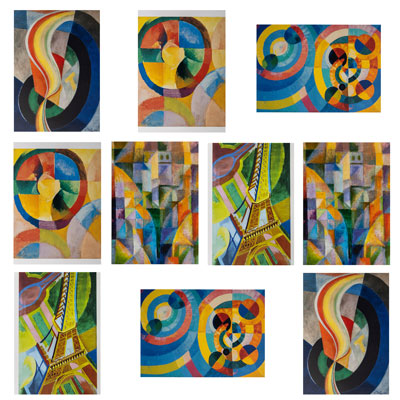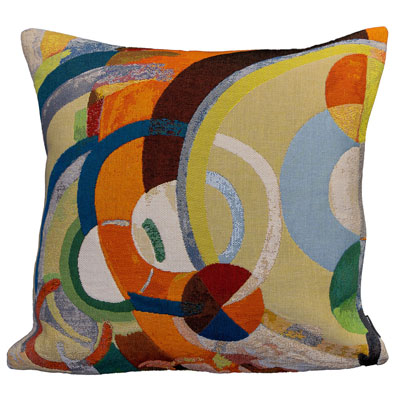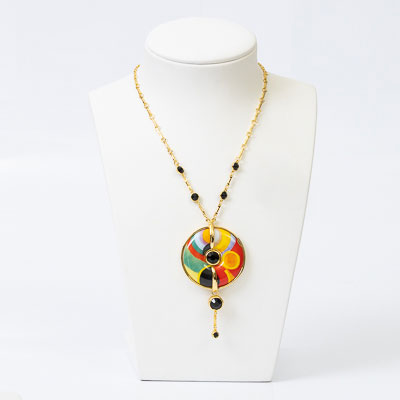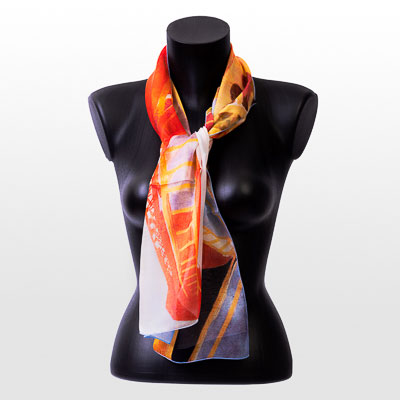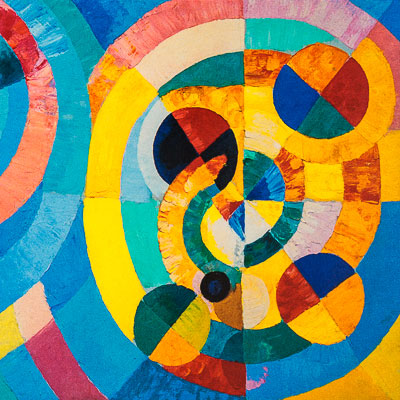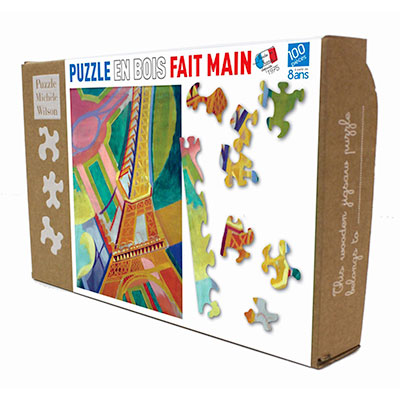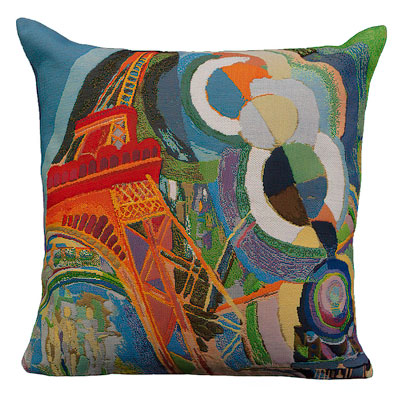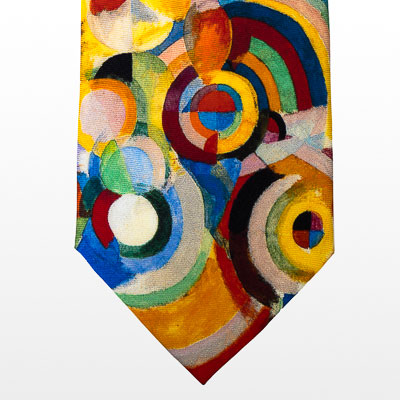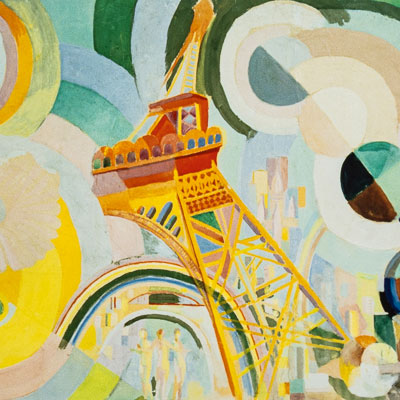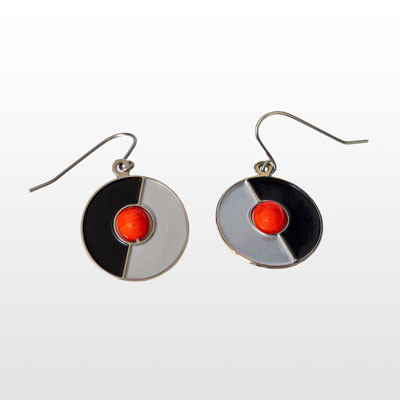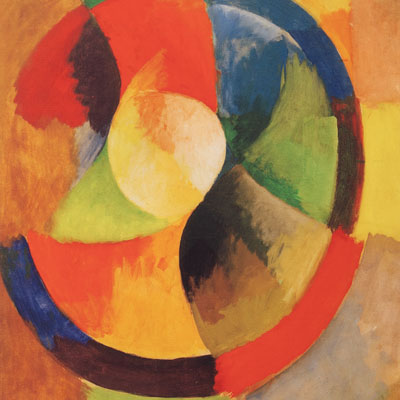Tel : (+33) 4 94 63 18 08
9am - 6pm from Monday to Sunday
All products Robert Delaunay • Products of the topic Abstract
Robert Delaunay Art Print - Manège électrique (1922)
REF : DELAU-OFF-12
In stock
Only 1 in stock
Unavailable
29,00 €
(32.09 USD)
Robert Delaunay Art Print - "Manège électrique (1922)"
Support : Heavyweight ragpaper
Dimensions : 40 x 50 cm
----------------------------------------------------
Variations :
This Art print is available in a bare version (delivered rolled in a heavy duty tube) or in a framed version (delivered flat ina robust pack).
The frame is black wood, matt, qualitative, 2.5 cm wide flat profile.
Orphism
Orphism is an artistic movement that emerged in France in the 1910s and was inspired by the poem "Orphée" by Guillaume Apollinaire published in 1908. It is characterized by the use of geometric forms and vibrant colors, often used abstractly, in order to create a sense of energy and dynamism. The main artists associated with this movement are Robert Delaunay, Sonia Delaunay, and Francis Picabia. Orphism had a significant influence on modern and contemporary art, particularly on the Futurist movement in Italy and the Lyrical Abstraction movement in France. It also influenced many artists worldwide, including Kazimir Malevich in Russia. The movement continued to be a significant force in art until the 1950s and was rediscovered and reevaluated by art historians and critics in the 1960s and 1970s. In comparing Orphism to Cubism, it is important to note that Orphism is inspired by Analytic Cubism and takes up its use of abstraction and flatness of space. However, unlike Cubism which is inspired by external objects, Orphism draws its inspiration from light itself and uses vibrant, warm colors to create dynamics and forms. By using color to produce forms rather than lines, Orphism opposes traditional painting which favors lines to represent empirical reality. Orphism is also known for paving the way for the theory that each plastic element can produce a specific sense effect.
Discover the artist
Delaunay Robert
Robert Delaunay born in Paris and died in Montpellier is an abstract painter who did a lot of research on the place of color.
He met his future wife, Sonia, who had arrived in Paris in 1905, from her native Ukraine in 1908. They married in 1910 and their work, as well as their careers, would then be intimately linked.
Both are abstract, and both will seek through their work to deny the idea of different planes to find a chromic harmony where nothing comes as the central subject, but where each element of a canvas is as important as the juxtaposed element.
The culmination of their research is called the Orphic Movement, it is a form of abstract cubism.
Delaunay Robert
Robert Delaunay born in Paris and died in Montpellier is an abstract painter who did a lot of research on the place of color.
He met his future wife, Sonia, who had arrived in Paris in 1905, from her native Ukraine in 1908. They married in 1910 and their work, as well as their careers, would then be intimately linked.
Both are abstract, and both will seek through their work to deny the idea of different planes to find a chromic harmony where nothing comes as the central subject, but where each element of a canvas is as important as the juxtaposed element.
The culmination of their research is called the Orphic Movement, it is a form of abstract cubism.
Delaunay Robert
Robert Delaunay born in Paris and died in Montpellier is an abstract painter who did a lot of research on the place of color.
He met his future wife, Sonia, who had arrived in Paris in 1905, from her native Ukraine in 1908. They married in 1910 and their work, as well as their careers, would then be intimately linked.
Both are abstract, and both will seek through their work to deny the idea of different planes to find a chromic harmony where nothing comes as the central subject, but where each element of a canvas is as important as the juxtaposed element.
The culmination of their research is called the Orphic Movement, it is a form of abstract cubism.
Delaunay Robert
Robert Delaunay born in Paris and died in Montpellier is an abstract painter who did a lot of research on the place of color.
He met his future wife, Sonia, who had arrived in Paris in 1905, from her native Ukraine in 1908. They married in 1910 and their work, as well as their careers, would then be intimately linked.
Both are abstract, and both will seek through their work to deny the idea of different planes to find a chromic harmony where nothing comes as the central subject, but where each element of a canvas is as important as the juxtaposed element.
The culmination of their research is called the Orphic Movement, it is a form of abstract cubism.
Delaunay Robert
Robert Delaunay born in Paris and died in Montpellier is an abstract painter who did a lot of research on the place of color.
He met his future wife, Sonia, who had arrived in Paris in 1905, from her native Ukraine in 1908. They married in 1910 and their work, as well as their careers, would then be intimately linked.
Both are abstract, and both will seek through their work to deny the idea of different planes to find a chromic harmony where nothing comes as the central subject, but where each element of a canvas is as important as the juxtaposed element.
The culmination of their research is called the Orphic Movement, it is a form of abstract cubism.




























































































